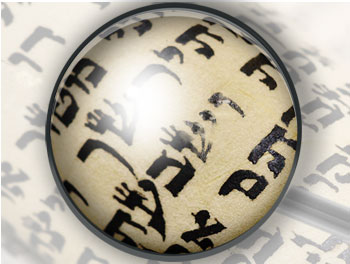We have been conducting a series of “Town Hall” meetings with Middle School classes as part of amplifying student voice [North Star Alert! “We own our learning.”] and I found myself in Grade 7. We were chit-chatting at the end and a student raised his hand and asked me a question: “I heard that you were in school or something? That you are studying to be a rabbi?”
Yup!
And after a little more back-and-forth, the money quote: “Why would you choose to be in school when you don’t have to?!”
Why indeed!
As I am spending my late nights and Sundays preparing my final papers and studying for my final exams, I sometimes wonder that exact same thing! But as I am preparing to finish my first year (this marks the end of my third trimester) of rabbinical school, I wanted to reflect for a bit about what this journey has meant to me, not only personally, but professionally – how has becoming a rabbinical school student impacted my headship?
I am currently taking my fourth and fifth classes. (I barely have the bandwidth for two classes a trimester, which is why I am on a long, slow journey towards ordination.) My first class was a unique “Peace & Conflict Studies” course that dealt with navigating conflict in a Jewish workplace with a spiritual dimension. My second and third classes were a Liturgy class about the High Holidays and the second trimester (I was grandfathered in) of Beginning Talmud. I am currently finishing out the Beginning Talmud track and am taking a Halakhah class about “Genetics & Jewish Law”. However interesting or not you may think those classes sound, let me take a moment to answer my own question.
It feels good to put myself outside my comfort zone and inside a student’s mindset once again. I look forward to sitting at the kitchen table and doing my Jewish Studies homework alongside my children.
That’s what I wrote last January when I announced that I was becoming a rabbi. The first part for sure has come true. (The second part is true metaphorically, if not in practice.) And that is what I shared with my Grade 7s – that the fact that I am struggling to remember long-ago buried Hebrew, while working in Aramaic trying to unpack talmudic conversation, and having to do so publicly, out loud in front of classmates and teacher, really does give me much-needed empathy for my students. I have days when I pray that the teacher calls on me because I am totally excited to share my learning, and there are days when I pray that the teacher doesn’t notice me because I am not sure that I understand something and I don’t want to be embarrassed in front of my peers – “student’s mindset” for sure!
Whether it is time management (when do I do my homework?), imposter syndrome (will they realize that I don’t know things?), second (or third) language acquisition (please don’t make me express myself in a language that I am not totally comfortable in!), and so much more – for my students for whom academics are not their strongest suit, this experience has been and will be wonderful for my empathy. And that empathy will, hopefully, help me think carefully about the kinds of supports those students need to be – and, more importantly -to feel successful.
Of course, for those students who LOVE to learn…me too! Other than not having enough time in the day or days in the week, I am so enjoying learning again (especially Talmud)!
What is most fun for me, however, is when I can make a direct application between something I am studying and something I am working on. [Obviously, a Jewish workplace would never have conflict so that class on “Peace & Conflict Studies” wouldn’t apply. Ha.] I have the pleasure – which I mean sincerely – of leading services each morning with Grade 6. One of the things we have studied this year in Talmud is the Weekday Amidah, especially the first three brakhot. In a wonderful bit of happenstance, that exact sugya of Talmud is one that we were studying – how did the Rabbis decide how many brakhot we should say, what should they be about and from where were they derived? The fact that I could unpack that in a very grade-appropriate way with our Grade 6s is exactly why I wanted to go to rabbinical school. Not because it was neat for me (it was so cool!), but because it allows me to subtly enhance the learning of my students and to add their link of learning to the chain of Jewish learning through the ages.
So, one year down, many (many) years to go! In the meanwhile, I can put my report card on the fridge next to my children’s and I will doubly enjoy Winter Break with both my student and principal hats.

Do you want to see how JK at OJCS will set your child up for success in school? Do you have a friend or relative with a child entering JK? Please contact our Admissions Director, Jennifer Greenberg (j.greenberg@theojcs.ca), to find out more or to book a COVID-friendly tour. You may also reserve your spot at our upcoming “JK Parlour Meeting” scheduled for Tuesday, December 17th at 7:00 PM (link made available when you RSVP).

We will be sending home information next week about how the school will navigate COVID protocols coming out of Winter Break, including providing families with rapid testing. Please be on the lookout for an important EMAIL.

We have a VERY EXCITING ANNOUNCEMENT to share next week that you are definitely going to want to hear! No spoilers here!

